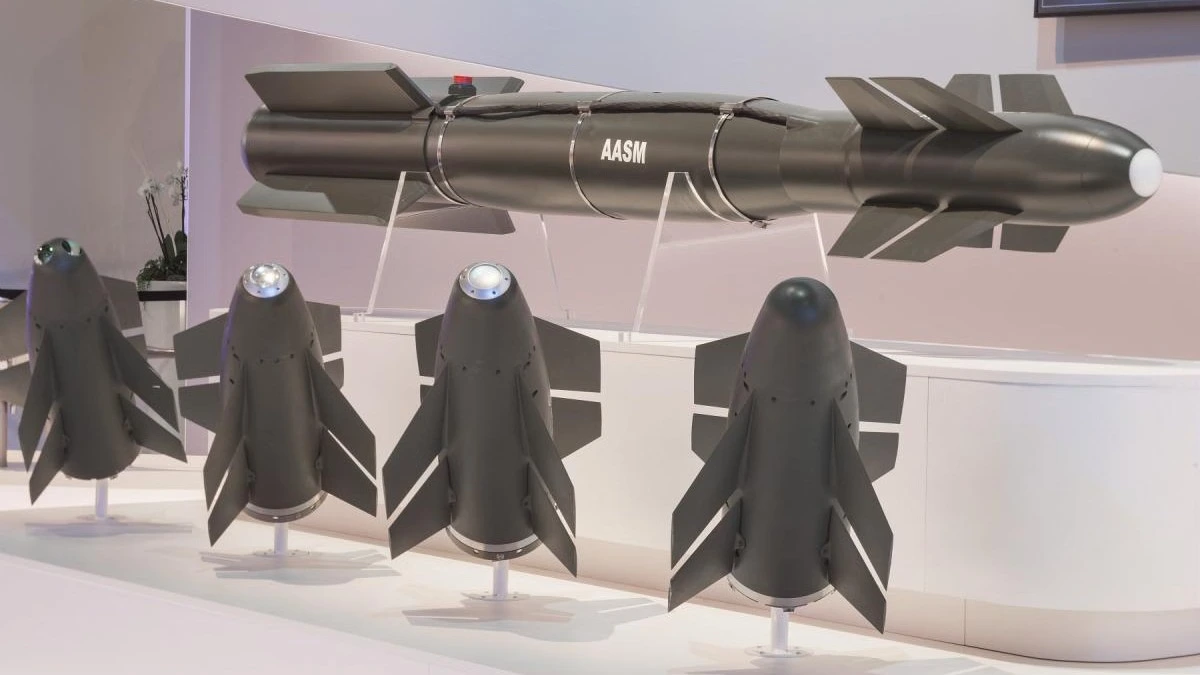In a major boost to India’s defence self-reliance, Bharat Electronics Limited (BEL) and France’s Safran Electronics & Defence (SED) have announced a joint venture to manufacture the HAMMER precision-guided air-to-ground weapon system in India.
The Highly Agile Modular Munition Extended Range (HAMMER)—already combat-proven and reportedly used by the Indian Air Force during Operation Sindoor—will now enter indigenous production, marking a significant leap in India’s precision-strike capability.
Key Features of HAMMER
The HAMMER system combines GPS–inertial navigation with laser or infrared guidance, enabling high-accuracy strikes against fortified targets. Its modular design allows multiple warhead options and propulsion packages, making it adaptable for platforms like the Rafale and potentially the Tejas LCA.
Strategic Milestone for Aatmanirbhar Bharat
The BEL–Safran Joint Venture Company (JVC), with 50:50 shareholding, will progressively localise manufacturing—from subcomponents to final assembly—targeting nearly 60% indigenisation. BEL will oversee production and quality assurance, while Safran will provide critical technology and design support.
The agreement, signed in the presence of senior defence officials and Safran leadership, follows the earlier MoU inked at Aero India 2025.
Boost to IAF Readiness
Domestic production will ensure faster supply, lower import dependence, and sustained mission readiness for the Indian Air Force. The weapon’s modularity enables rapid configuration for different operational roles—from tactical strikes to deep penetration missions—enhancing flexibility across combat theatres.
Pathway to Export Potential
With full lifecycle support and future upgrades planned within India, the JV could eventually position the country as an exporter of guided munitions, while creating a manufacturing hub for advanced HAMMER variants.
Strengthening India–France Defence Ties
The collaboration builds on long-standing strategic cooperation, including the Rafale program and joint ventures in aerospace and propulsion, further cementing France’s confidence in India’s defence ecosystem.
The move marks a decisive step from licensed manufacturing toward true technology partnership—advancing India’s goal of a robust, globally competitive defence industrial base.













